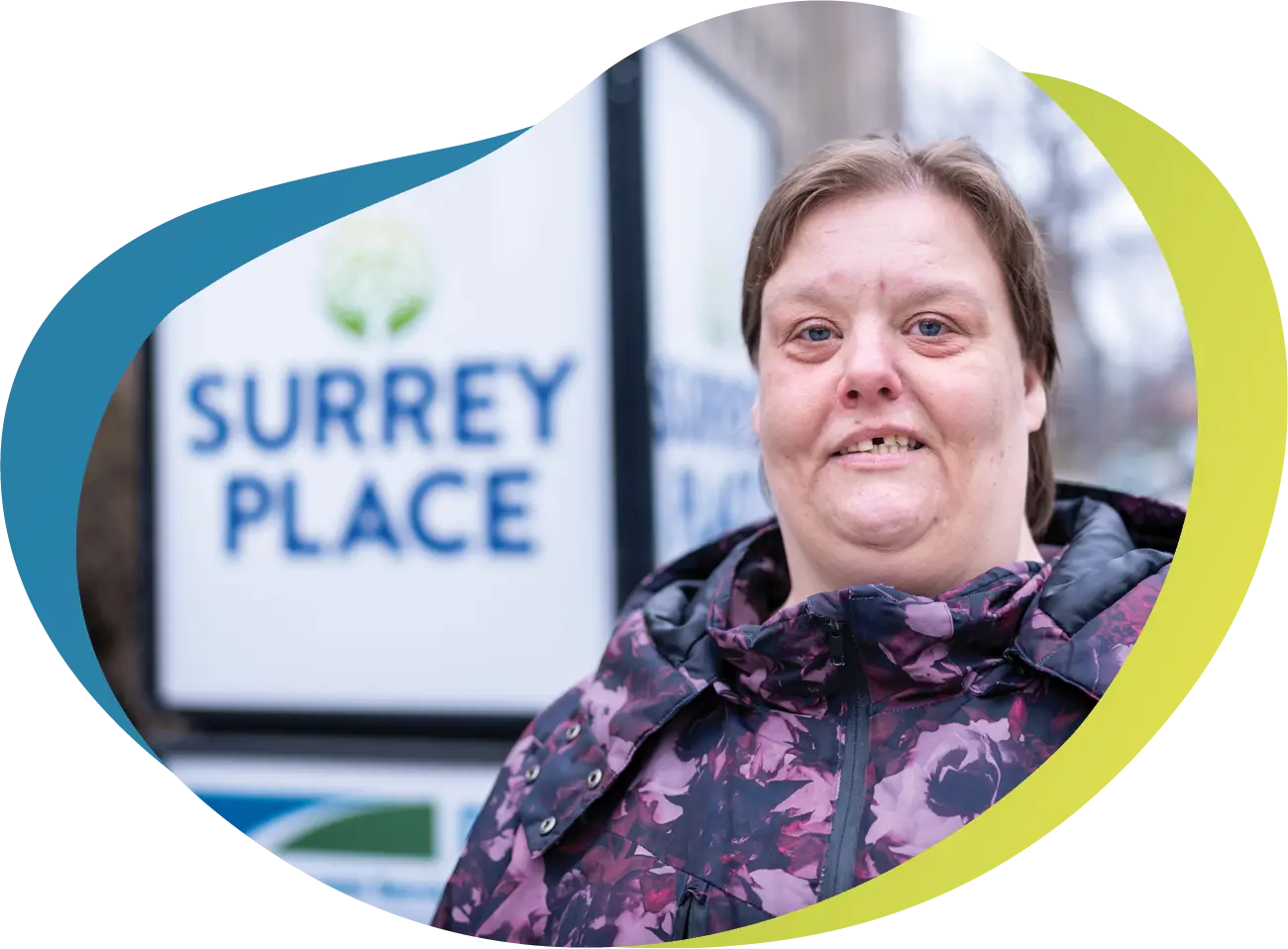Successfully Building a High-Performance Organization

Diversified Funding
At Surrey Place, we understand the importance of creating an agile and nimble organization by diversifying our revenue base to meet the changing needs of our clients, their families, and our community. This fiscal year we increased the number of our grant and proposal applications by 17%. As a result of these efforts, we achieved a 60% increase in awarded grant funds.
| Number of Applications | Number of Successes | Pending Applications | Total Awarded Funds ($) |
|---|---|---|---|
| 41 | 8 | 18 | $1,479,690 |
Grant Highlights
Enabling Accessibility Fund
Surrey Place was awarded over $80,000 to enhance accessibility at our west location. The funding will be utilized to install automatic door openers, improving access for both staff and clients that use the space and creating an inclusive environment that accommodates the needs of everyone.
Ontario Autism Program – Workforce Capacity Fund
Surrey Place was awarded additional funding from the Ontario Autism Program’s Workforce Capacity Fund to continue developing our Customer Relations Management (CRM) system. CRM projects have been a key undertaking for our Project Management Office and Autism Services teams as our organization modernizes and improves how our clients and families connect with our staff.
Children’s Aid Foundation – Teddy Bear Grant
In partnership with the Children’s Aid Society of Toronto, Surrey Place was awarded a second year of funding for a full-time Service Coordinator. The Service Coordinator role provides consultative service to Community Assessment and Support Team staff and families, which aims to improve the service experiences and outcomes for children and youth with multiple or complex special needs and their families.
Partnerships & Integrations
Urgent Response Services
In April 2022, the Ontario Autism Program launched the Urgent Response Services across Ontario, with Surrey Place serving as the lead agency for the Toronto region. With our partners across Toronto, families can now access a range of services right in their home, including service coordination, behaviour intervention, respite care, social work and occupational therapy. The urgent response team works closely with family members, using a mediator model to teach the skills to manage the behaviours effectively and reduce the risk of harm to others. As the service moves into its second year, the number of clients and supports provided is growing at an exciting and accelerated rate. We continue to collaborate with our partners to ensure that Urgent Response Services supports families from diverse cultures and backgrounds, while prioritizing the safety and well-being of clients and their families.
Seeing is Belonging: Vision Clinic
Through our commitment to providing comprehensive care for our clients, this fiscal year we established a partnership with the School of Optometry, Vision Science and the University of Waterloo. Together, with the support from the Azrieli Foundation, we are launching a three-year pilot program to run a dedicated vision clinic at Surrey Place. This much-needed clinic will provide vision care for our clients and is expected to launch by January 2024.
Medical Services
At Surrey Place, we are committed to providing medical support to individuals with intellectual and developmental disabilities and advocating for the care that they deserve. This fiscal year, the Surrey Place Medical Services team led impactful initiatives to better serve our community.
Through The Ministry of Health’s Alternate Payment Plan, Surrey Place was able to fund physicians to provide consultation services to individuals with intellectual and developmental disabilities and collaborate with Surrey Place staff supporting clients with complex needs. This medical consultation model is like no other service in Ontario. These physicians are incredibly passionate about caring for people with intellectual and developmental disabilities and are building capacity for current and future healthcare providers through their clinical expertise, education and support.
To help reduce the barriers that individuals with intellectual and developmental disabilities face accessing services, the Medical Services team launched a pilot program for primary care providers to easily refer clients to our team of physicians using the Strata Pathways portal. This new electronic referral portal is accessible to any primary care provider who uses the Ocean platform.
With 60 years of experience, Surrey Place is investing in the future of medical support through a cohort of physicians with specialized knowledge of adults with intellectual and developmental disabilities. This year, Surrey Place trained its first third-year Family Medicine Intellectual and Developmental Disabilities resident in the University of Toronto’s Surrey Place-led Enhanced Skills program. Within the following year, two additional residents will also begin the program. Through this specialty program, Surrey Place will increase the number of medical experts for adults with intellectual and developmental disabilities and build capacity through the mentorship of family doctors and future physicians.